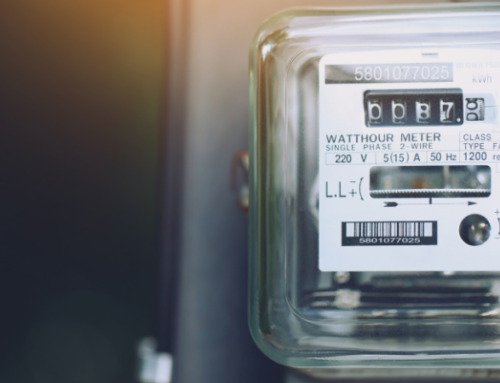How To Reduce Energy Costs For Small & Large Businesses
The United States Small Business Administration estimates that 40% of business expenses can be attributed to energy costs. As a business owner, you are concerned with your P&L, and finding ways to reduce costs is a constant pursuit. Energy and utility costs are an expense item that can be reduced if you can implement some of these simple tips. Educating your employees on energy-saving techniques, implementing the latest technologies, and making use of free services offered by your utility company are sure-fire ways to reduce your consumption of electricity, lower your costs, and increase your bottom line.
In this article, we outline 50 tips to reduce energy consumption at your business. But first, let’s look at the top ten ways of cutting costs.
1. Pay Attention To Your Equipment
2. Educate Your Employees
3. Pay Less For Electricity
4. Take a Peek at Your Peak Demand
5. Take Advantage of Free Energy Audits
6. Consider A Hybrid Energy Contract
To reduce energy costs for large businesses, certain customers can take advantage of on-peak and off-peak commodity pricing. Since the price of natural gas and electricity largely follows supply and demand economics, rates are typically less expensive during off-peak periods. Larger users of energy can reduce business energy costs by locking in one price for on-peak periods and getting a lower price for off-peak periods. Some large users even elect to float their power or gas rates on the index market during these off-peak hours, rather than pay a premium for a fixed-rate product.
7. In 2024, Use Utility Bill Auditing As A Strategy To Reduce Energy Costs
Utility bill auditors offer something very unique in the marketplace. A utility bill audit consists of a deep dive into your historical and current utility invoices to identify errors, make corrections, and even find refunds. Some utility bill audits can result in substantial business energy savings that can be implemented on a permanent basis. For example, in many deregulated energy states, retail energy suppliers will forget to ask for a tax exemption certificate from a tax-exempt entity. If you have been paying sales taxes to your new supplier for some time, and your business is exempt from the tax, you are entitled to a refund.
8. See If You Qualify For A Cheaper Distribution Rate Schedule
Another way to lower energy costs at your business is to pay less for electricity or natural gas delivery. If you understand the anatomy of an electric bill, then you know there is a difference between energy supply and energy delivery costs. What most commercial customers don’t know, however, is that the local utility company offers many different delivery cost schedules. In some cases, if your energy usage meets certain requirements, you can qualify for a less expensive rate schedule from the utility. And, switching rate schedules is as simple as contacting the utility and requesting to switch. Hiring an energy broker to do this on your behalf might be a better option since they understand the terminology and requirements needed to get your new rate plan implemented.
9. Consider Alternative Fuels
Another great energy cost reduction tip is to look at your business operation and consider alternative fuels, when applicable. For example, if you are using electricity to heat water and you have the option to switch to natural gas, it could be a more economical solution. In some utility territories, natural gas is not available due to pipeline restrictions; however, many utility companies are willing to foot the bill to run new gas lines to businesses in order to add new customers. If natural gas is not available at your business, contact your local gas utility company to see if they have any plans to bring gas to your area or programs where they will offer to build gas lines at no cost to you.
10. Hire An Energy Broker In 2024 To Watch The Market
Lately, energy markets have been extremely volatile, and finding a favorable rate for your business has been challenging. Energy brokers understand the driving forces behind energy prices, what makes them go up, and what makes them go down. As a commercial customer, you have the opportunity to lock in a future energy price when market conditions are favorable. An energy broker can watch the energy futures market on your behalf and notify you when prices are trending downward.
Now that we have covered the top ten tips for lowering energy costs at your business, let’s look at some other proven energy cost savings measures.
11. Measure Your Usage
Measuring your kWh and kW usage is a good step towards creating an energy strategy that reduces expenses. After all, you cannot reduce energy consumption without having an idea of your baseline usage.
12. Negotiate With Your Supplier
Customers located in deregulated energy states might be able to negotiate with energy suppliers when market prices drop. There are various energy contract tools available such as blend and extend contracts to allow you to reduce your energy costs.
13. Switch Energy Suppliers
We already spoke about finding energy suppliers with lower rates; however, finding a reputable supplier is also an important factor. Contacting with unscrupulous energy suppliers can lead to energy pass through charges and energy fraud.
14. Enroll In A Demand Response Program
Demand response programs allow energy consumers to get paid for reduced energy demand. If you are implementing an energy efficiency program, then demand response could be a great way to lower costs by generating incentive revenue.
15. Install Energy Storage
Energy storage systems, such as batteries, are a great way to lower energy consumption during high-cost periods, saving your business money. Storage systems are also a great complement to energy demand response programs.
16. Pay Attention To Energy Prices
When considering the future trend of energy prices in 2024, it’s important to know about the factors that determine and affect prices. Things such as energy supply and consumer demand play important roles in dictating market prices.
17. Dissect Your Energy Bill
It’s important for your controllers or energy managers to understand the anatomy of business electricity bills. Be sure to comb through your statements each month to catch errors.
18. Be Aware Of The Global Energy Economy
Certain global events, such as European energy market volatility, can impact prices in the U.S. It’s important to pay attention to the news, to get an idea of where prices are headed domestically.
19. Shop For Lower Natural Gas Rates
With natural gas fracking at its peak, natural gas prices are on the decline. Now is a great time to shop for natural gas rates in an effort to save.
20. Install A Smart Meter
Smart meters, whether they are installed privately or issued by the utility company, are a great way for monitoring and controlling energy usage. Install a smart electric meter to stay on top of your energy usage patterns.
21. Inspect Your Energy Tariffs
Energy tariffs determine how utilities charge you for energy delivery costs. Be sure to inspect your bills each month for accuracy.
22. Calculate Your Business Energy Consumption
It’s important to be able to properly calculate your energy usage to determine if there is anything out of the ordinary. Outliers in usage charts can help you determine inefficiencies in your building.
23. Avoid Energy Scams
Energy scams and fraud can cost your business thousands of dollars. It’s important to be aware of the common scams such as slamming, unauthorized charges, and egregious variable rates.
24. Be On The Lookout For Hidden Charges
Hidden energy charges in your utility bills can be common. Inspect your invoices each month for anything that does not match the terms of your retail energy contract, or utility tariff.
25. Renew Your Supply Contract At A Lower Rate
Nothing is better than paying less for energy in the future. With prices on the rise around us due to inflation, renewing your energy contract at a low rate is a win. Hiring an energy broker or consultant to watch the energy futures market on your behalf is a great way to accomplish this.
26. Take Advantage Of Contract Rescission Periods
In many states, energy contracts have rescission periods that allow you to cancel the contract within a few business days of signing the contract. If the market drops suddenly after you sign a contract, taking advantage of a contract rescission can help you save.
27. Adhere To Material Change Clauses
If you have a contract with a retail energy provider and you anticipate a significant reduction or increase in energy usage, be sure to refer to the material change clause in your energy contract. If you do not notify your supplier properly, this could lead to significant cost increases for your business.
28. Learn What To Do When Buying A Business
If you are buying another business, be sure to review any retail energy contract language with the existing business’s energy supplier. Some suppliers will allow you to assume the supply contract if it has a favorable rate. This can save you thousands of dollars if market prices are higher at the time you buy the business.
29. Learn What To Do When Relocating
If you are relocating your business within the same utility footprint, it is vital that you transfer any existing energy supplier contracts to the new location. This can save you a significant amount of money in contract cancellation fees.
30. Avoid Early Termination Penalties
Most retail energy contracts contain early termination clauses that trigger termination penalties when the business contract is terminated. It’s important to be aware of and avoid these fees at all times.
31. Fix vs. Float: Decide What’s Best For You
Retail energy suppliers offer an array of energy supply plans, some that allow you to fix your energy rates, while others allow you to float your rate on the index energy market. Determining the best price solution based on your business’s energy needs can help you save money in the long run.
32. Long vs. Short Term Energy Contracts
Another big decision is to decide on the length of your energy contract. Locking in rates for a short term or long term period can be substantial and mean big savings or cost increases based on market conditions. It’s best to consult the advice of an experienced energy brokerage firm when contracting for energy supply.
33. Avoid Energy Buying Mistakes
There are several energy buying mistakes to avoid when choosing an energy supplier. Not reviewing certain contract language or negotiating with suppliers yourself without the help of an energy professional are a few common mistakes.
34. Implement An Energy Incentive Program
Incentivizing your employees for using less energy is a great way to cut costs. Rewarding the maintenance department for better managing HVAC equipment or offering rewards for lower energy consumption such as group outings can go a long way.
35. Check Sales Tax Exemptions
Check to see if your business is exempt from paying sales taxes. In some states, sales taxes on energy expenses are not applicable to all business types.
36. Measure Reactive Power (KVA or KVar)
Reactive power is unused power that is forced back to the grid due to building inefficiencies. In some utilities, businesses are charged for reactive power. There are ways to measure and reduce reactive power by implementing energy efficiency equipment, such as capacitors.
37. Avoid Wasting Energy
Turning lights off in rooms that are not being used or adjusting thermostats to use less energy are great ways to reduce energy consumption.
38. Use Iot Thermostats
New Internet of Things and AI technologies can help you save on energy. IoT thermostats can speak to each other and automatically adjust to help you conserve energy.
39. Power Down Equipment When It’s Not In Use
One of the simplest ways to reduce energy consumption is to power down your appliances and equipment when they are not being used. Many business owners can save money by turning off equipment when the business is closed.
40. Change Your HVAC Filters
Changing your HVAC filters regularly will help your units to perform more efficiently, reducing energy consumption.
41. Check Your Building’s Insulation
If your business is located in a state that has cold Winters, it’s important to be sure that you have proper insulation installed. This will prevent heat from escaping and will save on natural gas and electricity costs depending on your heating source.
42. Establish Energy Efficiency SOPs
Establishing standard operating procedures (SOPs) related to energy efficiency is a best practice for reducing energy costs. SOPs will educate staff on how to properly manage your equipment and building’s energy usage.
43. Consider Renewable Energy
Renewable energy generation such as geothermal or solar panels are a great way to offset energy expenses long term. Installing a solar system allows you to generate your own electricity and even comes with tax and other financial incentives.
44. Install A Microgrid
Microgrid technologies allow businesses to establish their own mini-grids using distributed energy generation assets. Power producing systems such as natural gas cogenerators, solar panels, and wind turbines can allow you to go off the grid and avoid volatile electricity prices.
45. Utilize Artificial Intelligence
Artificial Intelligence (AI) programs can help you to reduce electricity costs in many ways. New AI technologies can predict market prices and energy demand to provide you with recommendations for energy cost containment. Follow AI signals to shave peak load during high-priced market hours.
46. Resequence HVAC Controls
Hiring an HVAC expert or energy engineer to reprogram your HVAC controls can help you to reduce electricity consumption. HVAC systems have electronic components that allow you to fine tune how the machine operates. Tuning controls for energy efficiency can drastically reduce energy bills.
47. Consider Water Consumption
There are new water technologies, such as backflow devices, that can help to remove air bubbles from your water supply. This can reduce your water readings at the meter spins, reducing both your water and sewer bills.
48. Encourage Remote Working
In the modern economy, working from home is the new norm. If your business allows for it, you can encourage more remote work which can cut back on office space and energy expenses.
49. Install A Tankless Water Heater
Tankless water heaters, unlike traditional tank-style water heaters, heat water on demand instead of storing it in a tank. These units are 15 to 30% more energy efficient than traditional water heaters.
50. Go Paperless
Digitizing your office’s paperwork is not only good for the environment, but it can also help you save on energy. By eliminating costly Xerox machines and printers, you can reduce your electricity usage on a daily basis.
The Bottom Line
There are lots of ways to lower your energy costs in 2024 . These are a few great suggestions to get you started and moving toward increased profits and sound energy management. If you are serious about reducing energy costs in a more significant fashion and would like to speak to an expert energy advisor, contact us today. Our team of energy professionals has over 100 years of combined experience helping commercial and industrial clients cut energy expenses.



